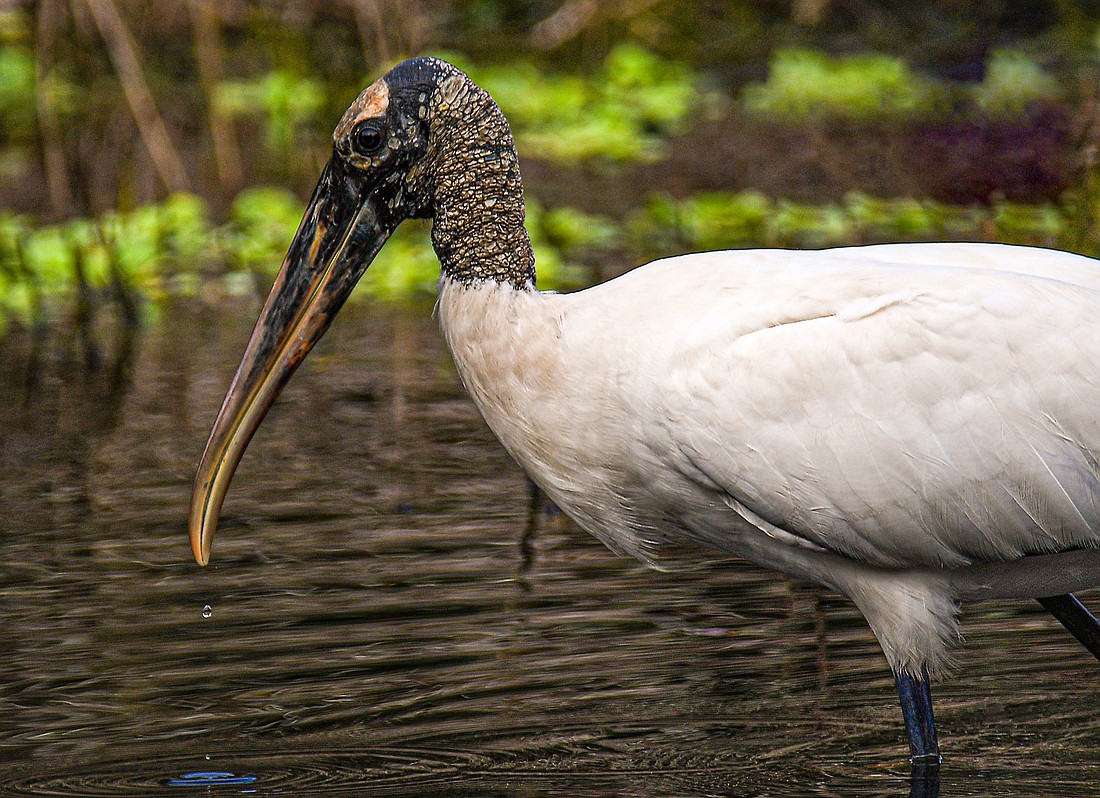- January 28, 2026
-
-
Loading

Loading

With their thick, curved bills and scale-like patches on their featherless heads, the prehistoric looking wood storks stand out in a crowd. These large and heavy wading birds are the only stork native to North America.
Wood storks mostly eat fish, and forage for food in flooded habitats, including wetlands, swamps, retention ponds and tidal pools. They are tactical feeders, meaning they capture food by feel. With their sensitive bill submerged partially open in the water, they walk slowly through wetlands, stirring the bottoms with their sizable pink feet. And when they feel food, they snap their bill shut in as little as 25 milliseconds, which is the fastest reflex known in vertebrates.
A nesting pair of wood storks and their chicks may eat over 400 pounds of prey during a single breeding season. Wood storks therefore depend on high densities of fish, which they would historically find in Florida as result of the normal hydro-cycles of wetlands. Natural flooding of these habitats increases prey population, and then concentrates prey in one area, when waters recede.
The draining of wetlands for development and agriculture has been extremely detrimental to our Florida population of wood storks, which are a federally designated threatened species. Additional environmental threats to wood storks include pesticide poisoning, as well as collisions with power lines. And, as wood storks are slow to take off in flight, due to their size and weight, they run a higher risk of being being struck by cars when taking off across a road.
We can help prevent such vehicle collisions by taking special care when driving by wood storks near roads.